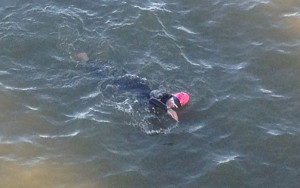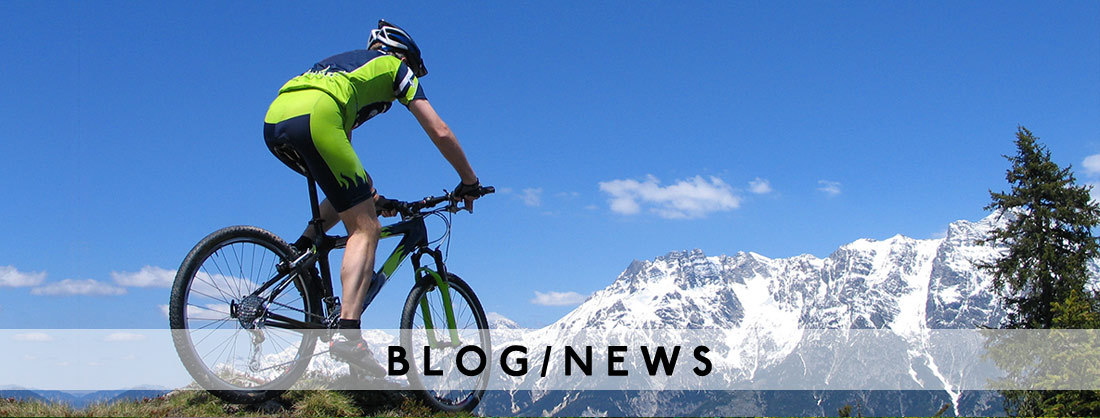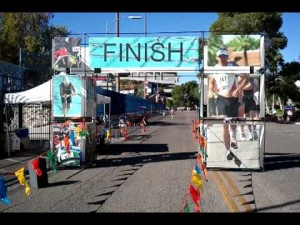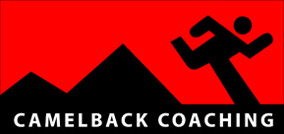 Joan McGue made the bike cut-off at Ironman Arizona this year by five seconds. Her timing chip was pulled at the 13.1-mile mark of the run. She did not cross the finish line. But of the twenty-six Camelback Coaching athletes who toed the line on race morning—several 10-hour finishers among them—she produced the most impressive performance of the day.
Joan McGue made the bike cut-off at Ironman Arizona this year by five seconds. Her timing chip was pulled at the 13.1-mile mark of the run. She did not cross the finish line. But of the twenty-six Camelback Coaching athletes who toed the line on race morning—several 10-hour finishers among them—she produced the most impressive performance of the day.
On paper, Joan shouldn’t have finished the bike leg, her 160-watt threshold power not a match for 25-mph race day winds. That morning, as Bill and I stood on the Rural Road bridge, our jackets flapping in the breeze, we watched as Joan passed underneath us en route to the swim turnaround, and thought, “Oh, no.”
But she didn’t do what many athletes would have done in a similar predicament—quit.
We’ve heard the following sentiment in races past from other athletes—some our own, some not—at various points during the bike and the run: “I can’t make the cut-off.” For most, this is not really the case. They do have the time. They do have the ability. They can make the cut-off . . . if they choose to continue. If they don’t quit.
For those who have gotten to this point, have uttered these words, many find the inner resolve—perhaps after a quick pep talk—then remount or begin jogging, as the case may be, and do their best to finish. We hold the utmost admiration for these athletes. Who power through a low moment. Who continue to push.
But others don’t and it’s interesting to watch this unfold. We’ve seen it as early as lap one on the IMAZ bike course. “I can’t make it.” And they step off. Wha—?
Certainly, if anyone had cause to do this during IMAZ 2014, it would have been Joan. She faced a daunting—most would have said impossible—task as she left T1. She knew her abilities. She saw the conditions. She could do the math. She could have dismounted right then and saved herself the trouble. But she didn’t.
We urge our “cut-off chasers” or anyone having difficulty—who doesn’t?—to follow this guiding race day tenet: Don’t take yourself off the course, make them do it. Make them pull your chip.
Joan McGue has always adhered to this philosophy. She does not quit. And she’s a two-time Ironman finisher because of it (Ironman Canada and Ironman Arizona). She’s also represented the United States at the Duathlon World Championships and completed one of the toughest Half Ironman-distance courses out there, Wildflower.
I think it’s easy to lose sight of accomplishments like this. In the triathlon world, the efforts of a 16-hour finisher can be easily overlooked, while we sing the praises of a Kona qualifier. But when you consider the general population, we’re talking rock star status for anyone who even steps foot on the Ironman playing field. But for Joan, it’s more than that. Talk about someone who has the odds stacked against her every time she steps up to the start line. But step up, she does. She goes for it. And doesn’t stop until someone forces her to or she crosses the finish line.
Bill and I are entering our twelfth year in the full-time triathlon coaching business, and we’ve coached Joan for seven of those. Year after year, we cite her as an example in our mental toughness lectures, because there is no better example. She always rises to the occasion, tries her best, never quits, and as a result, never disappoints.
During our military careers, we routinely had to ask the question—because often, lives depended on it—“Who do you want with you when the going gets tough?” For us, the answer lies not in talent, but in spirit. We would have picked Joan every time.



